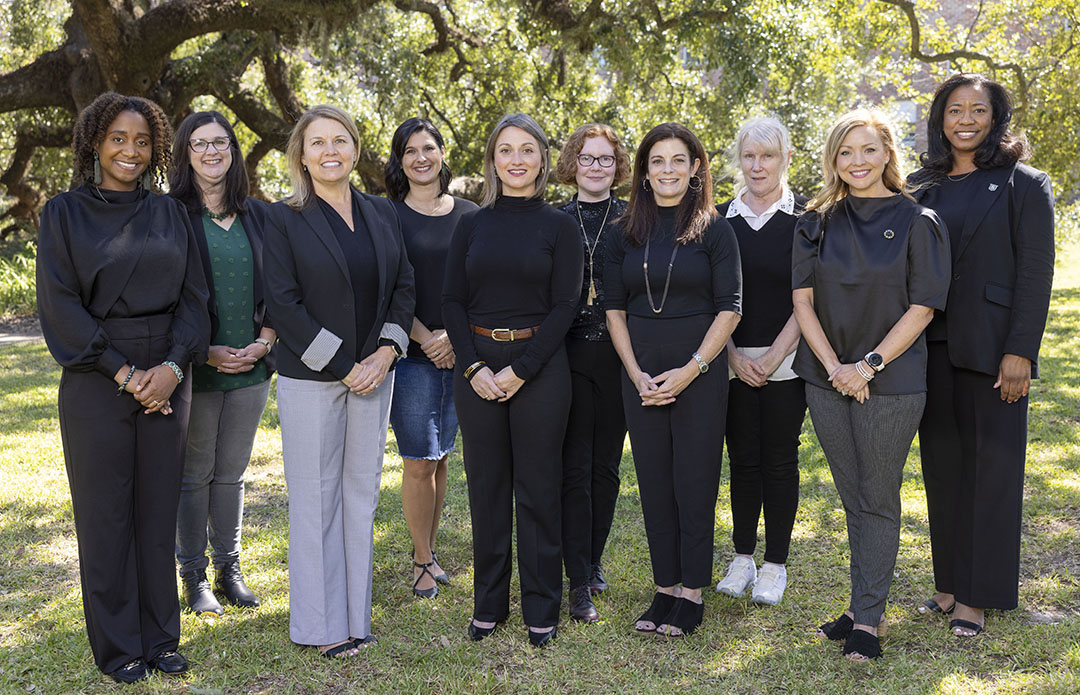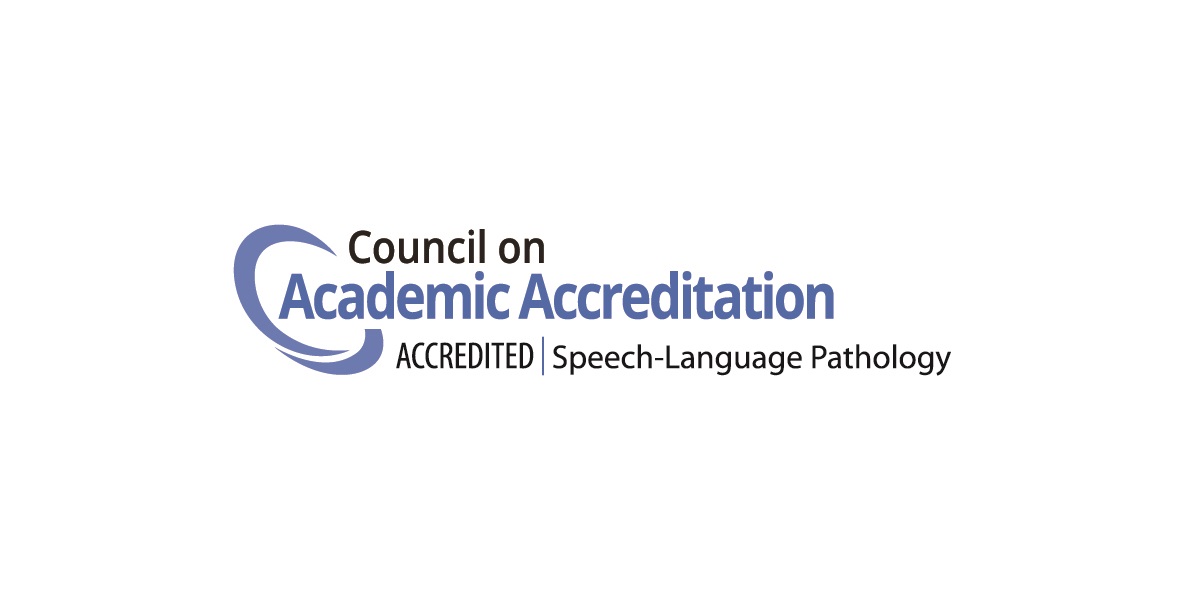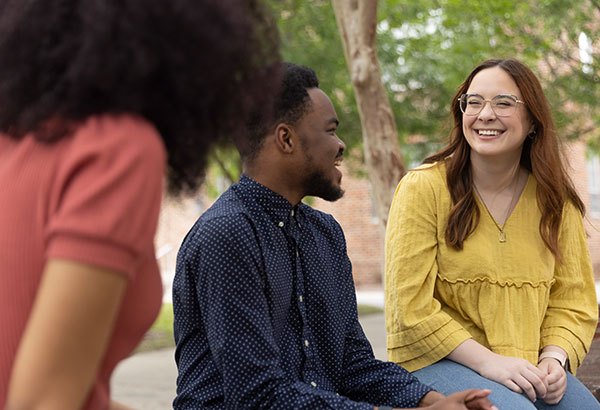Communication Sciences and Disorders

Graduate Mission Statement
The mission of the Master of Science program in Communication Sciences and Disorders is to train students to be knowledgeable, skilled, and ethical speech-language pathologists; to conduct and evaluate evidence-based research; and to appreciate life-long learning in the areas of normal, different and disordered communication across the life-span and among cultures.
Communication Sciences and Disorders offers the academic course work and clinical practica experiences to meet both state licensure and the American Speech-Language-Hearing Association's requirements for the Certificate of Clinical Competence in speech-language pathology (ASHA CCC-SLP). Students pursuing State of Louisiana Ancillary Certification as a Speech Therapist should consult with a faculty advisor for specific requirements.
Admission to the graduate program in Communication Sciences and Disorders (CSD) is competitive and enrollment is limited. Meeting the minimum admission requirements does not guarantee admission to the program. You can find the average scores from past admission cycles here.
For more information on applying for the program, email csdadmissions@southeastern.edu or 985-549-2214
To receive the Master of Science (M.S.) degree, the student must:
-
Complete thirty-six (36) hours in CSD course work including CSD 602, 606, 607, 613, 614, 616, 617, 632, 633, 634, 628, and 687. Clinical practicum hours vary depending upon previous experience. Students with no clinical experience must complete five (5) semesters of clinical practicum (CSD 500, 510, 611, 603, and 630). Students with a CSD background with some clinical experience but less than fifty (50) clinical hours must take four (4) semesters of clinical practicum (CSD 510, 611, 603, and 630). Students who have a CSD background from Southeastern Louisiana University with at least fifty (50) hours of clinical practicum must take three (3) semesters of clinical practicum (CSD 611, 603, 630). Regular Status students who do not have 25 observation hours must register for CSD 328.
-
Complete six (6) hours of CSD electives with no thesis or six (6) hours of thesis credit with thesis option. THESIS OPTION: Students will be allowed to enter the thesis option only with the consent of the Graduate faculty. The thesis is a major work of independent research of primary topics and will be supervised by the student's major professor and thesis committee.
-
Have no more than one (3 hours) of "C" in CSD classes. A student who has earned a grade of "C" or lower in a course may not repeat the course in order to earn a higher grade. A student is in good standing and is considered to be making satisfactory progress if at least a minimum of 3.0 semester and a 3.0 cumulative GPA are earned in all graduate courses. Students must have a 3.0 cumulative GPA to be eligible for enrollment in clinical practicum courses, and the 3.0 cumulative GPA is a prerequisite for students to change degree status from Unclassified to Regular admission status.
-
Complete one semester as a full-time student, excluding summer.
-
Students Without a CSD Undergraduate Degree: Students who have not completed an Undergraduate program in speech, language and hearing must complete CSD 201, 205, 212, 213, 309, 327, 328, and 415.
Students with a speech-language pathology background typically finish in two and one-half years including summers while non-background students typically finish in three and one-half years including summers.
Frequently Asked Questions
Does Southeastern have a graduate program in audiology?
No, however Southeastern’s graduate faculty includes a certified audiologist who is committed to preparing SLPs who can successfully implement all hearing-related aspects of their scope of practice. Collaboration with audiologists is encouraged.
When should I apply?
Southeastern’s MS program in Speech-Language Pathology has two application cycles per year. The deadline for fall admission is March 1st. The deadline for spring admission is October 1st.
Students currently enrolled in undergraduate programs may apply during their final undergraduate semester. All materials must be received in our office by the deadline.
Does admission to the MS program in the Communication Sciences & Disorders program require an interview?
No, but we will gladly meet with prospective students. To schedule a visit, contact the current CSD Graduate Coordinator.
How much is tuition?
Information regarding tuition and fees can be found here.
May I apply if my undergraduate degree was not in speech-language pathology?
Yes, students from other degree programs are encouraged to apply. Non-background students will take a total of 8 undergraduate prerequisite courses (24 credit hours). These 8 prerequisite courses include: CSD 201, 205, 212, 213, 309, 327, 328, 415 and can be taken as a full time graduate student. You may take some of these courses prior to being accepted into the graduate program.
How many people apply and are admitted each year?
During the past 3 years, approximately 180-200 individuals have applied each year. Approximately 80% of applicants meet the minimum criteria for consideration.
Approximately 30 individuals per year are admitted into the program.
How many students are in the graduate program?
At any given time, there are approximately 65 graduate students in the Communication Sciences & Disorders program, at various stages of completion.
Might I have coursework deficiencies to make up?
Most students with an undergraduate degree in Communication Sciences & Disorders will have the necessary coursework. ASHA certification policy requires at least one 3-credit, undergraduate course in each of the following areas: Physical Science (Chemistry/Physics), Biological Science, Mathematics, and Social/Behavioral Science.
Will you contact me if parts of my application packet are missing?
It is your responsibility to ensure that all materials reach Southeastern by the deadline of your targeted admission cycle (March 1st or October 1st of any year). To inquire about Applications, Fees, Transcripts, GRE scores or Immunization Records, contact the Graduate Admissions Division of the Office of Admissions. To inquire about Letters of Reference, Writing Sample, or Resume contact the current CSD Graduate Coordinator.
If you do not meet at least the minimum requirements for admission, your application will not be viewed by our department for possible acceptance.
What does “Alternate Status” mean?
Sometimes, due to limited openings in the program, the CSD Graduate Admissions Committee is unable to offer regular admission to all suitable applicants. If you receive notification that you have been selected as an alternate, this means that the committee would like to offer you regular admission if an opening becomes available. Alternates will be notified within 4-6 weeks of the original letter.
In what facet are classes offered? In the evening, during the day, or online?
Each semester, both daytime and evening classes are offered. For non-background students, undergraduate prerequisite courses are typically offered during the day only. Clinical practica take place during the day.
Very few classes are 100% online. Periodically, some classes may be offered in a 50% online format.
What are the opportunities for clinical experience?
Graduate students will acquire one or two semesters of practicum experience in Southeastern’s Speech-Language-Hearing Clinic under the close supervision of our full time, certified clinical faculty. Intermediate and advanced clinical training occurs in the field. Southeastern has contracts with numerous hospitals, rehabilitation facilities, school systems, nursing homes and outpatient clinics within a 60-mile radius of campus. Student clinicians will experience one field-based placement dedicated to pediatrics, one dedicated to adults, and a final, advanced “specialty clinic” intended to allow the student to explore the population and/or clinical environment of her/his choice. University liaisons work closely with field-based supervisors to ensure that each student meets/exceeds the quantity and diversity of contact hours required by ASHA for certification.
Does your program provide financial assistance?
No. However, applicants may visit the following link for financial assistance information regarding loans and scholarships: http://www.southeastern.edu/admin/fin_aid/
In addition, graduate assistantship (GA) positions are available to students admitted
with regular graduate status in departments campus-wide. To learn more, access the
following links:
http://www.southeastern.edu/acad_research/programs/grad_school/financial_aid/grad_asst/index.html and https://jobs.selu.edu/applicants/jsp/shared/Welcome_css.jsp or contact the Human Resources Office at 985-549-2308.
Does Southeastern have its own chapter of the National Student Speech-LanguageHearing Association (NSSLHA)?
Yes. Southeastern’s NSSLHA chapter is well known for its dedication to the professional development of its members. Attending the annual ASHA convention is a priority, and members typically seek/receive financial support from their academic college, department, student government association, and various other campus and community entities. Our NSSLHA chapter also regularly engages master clinicians and other professionals to lecture on topics of specific interest. For more information access the following link: http://www.southeastern.edu/acad_research/depts/hhs/ug_prg/csd/stud_org/

The master of science (M.S.) education program in speech-language pathology at Southeastern Louisiana University is accredited by the Council on Academic Accreditation in Audiology and Speech-Language Pathology of the American Speech-Language-Hearing Association, 2200 Research Boulevard, #310, Rockville, MD 20850, 800-498-2071 or 301-296-5700.






